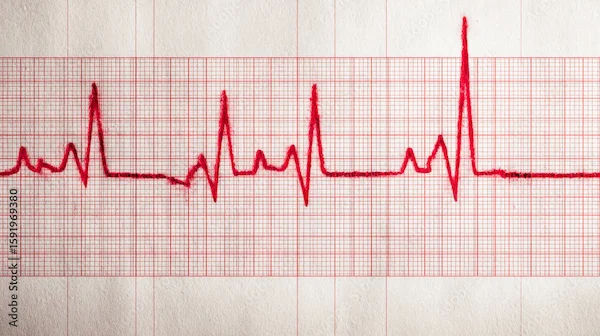Understanding Megaloblastic Anaemia Causes and Treatments


Introduction
Megaloblastic anaemia is a type of blood disorder that affects many people, often without them realising it. If you or someone you know has been feeling unusually tired, weak, or dizzy, it might be due to this condition. The good news is that with the right knowledge and treatment, it can be managed effectively.
In this article, we’ll break down what megaloblastic anaemia is, its causes, symptoms, and the best ways to treat and prevent it. Our goal is to help you understand this condition in simple terms so you can take the right steps toward better health.
What is Megaloblastic Anaemia?
Megaloblastic anaemia occurs when your body doesn’t produce enough healthy red blood cells due to a deficiency in vitamin B12 or folic acid (vitamin B9). These vitamins are essential for making red blood cells, which carry oxygen throughout your body.
When they’re in short supply, your body produces abnormally large and immature red blood cells (called megaloblasts) that don’t function properly.
Consult General Practitioner for Personalised Advice
Common Symptoms
The symptoms of megaloblastic anaemia develop slowly and may include:
Fatigue and weakness – Feeling unusually tired even after rest.
Pale or yellowish skin – A sign of low red blood cell count.
Shortness of breath – Especially during physical activity.
Dizziness or lightheadedness – Due to reduced oxygen supply.
Tingling or numbness in hands and feet – A sign of nerve damage (common in B12 deficiency).
Smooth or sore tongue – Some people develop mouth ulcers.
Poor concentration and memory issues – Brain fog due to low oxygen levels.
If you experience these symptoms, it’s important to consult a doctor for proper diagnosis.
What Causes Megaloblastic Anaemia?
The two main causes are:
1. Vitamin B12 Deficiency
Poor Diet – Not eating enough B12-rich foods (meat, eggs, dairy).
Pernicious Anaemia – An autoimmune condition where the stomach can’t absorb B12.
Digestive Disorders – Conditions like Crohn’s disease or celiac disease can interfere with absorption.
Stomach Surgery – Some weight-loss surgeries reduce B12 absorption.
2. Folic Acid (Vitamin B9) Deficiency
Inadequate Diet – Not eating enough leafy greens, beans, or fortified grains.
Alcoholism – Heavy drinking reduces folic acid absorption.
Pregnancy – Increased need for folic acid can lead to deficiency.
Certain Medications – Some drugs (like methotrexate) interfere with folic acid.
How is it diagnosed?
If your doctor suspects megaloblastic anaemia, they may recommend:
Blood Tests – To check red blood cell size, vitamin B12, and folate levels.
Bone Marrow Test – Rarely needed, but helps confirm the diagnosis.
Early diagnosis is key to preventing complications like nerve damage or heart problems.
Get Your Health Assessed
Treatment Options
The treatment depends on the underlying cause:
For Vitamin B12 Deficiency:
B12 Injections – If absorption is poor (common in pernicious anaemia).
Oral Supplements – For mild deficiencies or dietary causes.
Dietary Changes – Include more meat, fish, eggs, and dairy.
For Folic Acid Deficiency:
Folic Acid Supplements – Usually taken as pills.
Diet Adjustments – Eat more spinach, lentils, oranges, and fortified cereals.
In most cases, symptoms improve within weeks of starting treatment.
Prevention Tips
You can reduce the risk of megaloblastic anaemia by:
Eating a Balanced Diet – Include B12 and folate-rich foods.
Taking Supplements if needed – especially during pregnancy or if you have absorption issues.
Limiting Alcohol – Excessive drinking depletes folic acid.
Regular Check-ups – If you have digestive disorders or a history of anaemia.
When to See a Doctor?
If you experience persistent fatigue, weakness, or neurological symptoms (like tingling), don’t ignore them. Early treatment can prevent complications.
Final Thoughts
Megaloblastic anaemia is a manageable condition once identified. By understanding its causes, symptoms, and treatments, you can take proactive steps toward better health. If you or a loved one is experiencing symptoms, don’t hesitate to seek medical advice.
Consult General Practitioner for Personalised Advice
Consult General Practitioner for Personalised Advice

Dr. Anand Ravi
General Physician
2 Years • MBBS
Bengaluru
PRESTIGE SHANTHINIKETAN - SOCIETY CLINIC, Bengaluru

Dr. Gunashree V L
General Physician/ Internal Medicine Specialist
3 Years • MBBS
Bengaluru
Apollo Clinic, JP nagar, Bengaluru

Dr Syed Mateen Pasha
General Physician
2 Years • MBBS
Bengaluru
PRESTIGE SHANTHINIKETAN - SOCIETY CLINIC, Bengaluru

Dr Suseela
General Physician
5 Years • MBBS
Bengaluru
Apollo Medical Center, Marathahalli, Bengaluru

Dr. Avinash Pasuparthy
General Practitioner
5 Years • MBBS
Visakhapatnam
Apollo Clinic Vizag, Visakhapatnam







